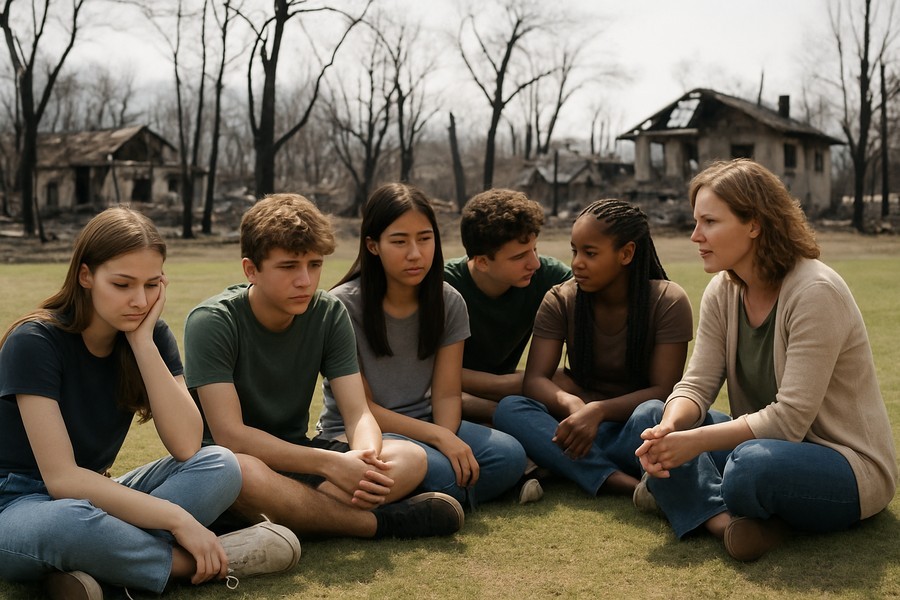
Continuing Mental Health Struggles for Youth in the Aftermath of Maui's Wildfires
When wildfires ravaged the town of Lahaina, the impact was far more than physical. Mia Palacio, a local resident, experienced tremendous emotional turmoil as she grappled with the loss of her home and the upheaval of her life. Like many others, she found herself moving from one high school to another, struggling with feelings of isolation and grief.
Palacio's experience is not unique. Hundreds of students in Maui have contended with significant mental health challenges since the wildfires, and many have not been able to access the support they need. It has been estimated that more than a third of Maui's student population suffered serious losses from the fires, which resulted in 102 deaths and substantial property damage.
Long-Term Mental Health Implications of Natural Disasters
Even two years on, the community is struggling to return to normalcy. Mental health professionals have noted an increase in the mental health challenges faced by students. This is a common occurrence in the aftermath of disasters when the initial adrenaline rush subsides but stress levels remain high.
Christopher Knightsbridge, a researcher who has studied the mental health impacts of the Lahaina wildfires, explains that the prolonged uncertainty and change after a disaster can lead to a delayed mental health crisis. Schools, often unprepared for this long-term impact, struggle to provide the necessary mental health supports.
Insufficient Mental Health Resources in Maui
The shortage of mental health professionals in Maui is exacerbating this problem. The number of psychiatrists serving the youth population has halved over the past few years, even as the demand has grown. As Knightsbridge warns, "The crisis isn't over."
Palacio found solace with the help of a school counselor and a local organization that supports teens' mental health through outdoor activities. This progress, however, does not negate the fact that many children are still grappling with depression and anxiety.
Continued Struggles and Fear
DayJahiah Valdivia, another student in Maui, reveals that her anxiety levels surge at the slightest signs of a wildfire. Despite having an escape plan, she often feels unsafe and has difficulty concentrating in school.
According to a study from the University of Hawaii, more than half of the children who survived the fires exhibited symptoms of depression, and nearly a third likely had an anxiety disorder. Almost 50% were experiencing symptoms of post-traumatic stress disorder (PTSD).
Effects on Academics and Behavior
Students who have lost their homes and stability tend to struggle more academically and demonstrate behavioral challenges. Many students disengage from school, find it difficult to focus, or are reminded of the disaster, leading to emotional distress. This lack of stability and focus affects their academic performance and overall well-being.
Efforts to Boost Mental Health Support
Efforts have been made to address the mental health crisis in Maui. The education department has brought in mental health providers from neighboring areas and used federal grants to provide support. However, the shortage of staff remains a significant challenge, and it has been difficult to fill positions due to the high cost of living in Maui.
Despite these challenges, some programs have been successful in providing mental health support. One such program, the Maui Hero Project, uses outdoor activities as a form of therapy. However, stigma around mental health, particularly in certain cultural communities, can prevent children from seeking the help they need.
The state is exploring new ways to support students, including a program called YouthLine, which will train teens to respond to crisis calls. Keakealani Cashman, a student who lost her home in the fires, is hopeful about contributing to these efforts. She plans to work as a behavioral health specialist in Hawaiian language immersion schools.
"This horrible, horrible thing happened to me and my family, but I don’t have to let it kill the rest of my life," Cashman said. "I can really help my family, my community in school, and just make an impact in what I know how to do."
